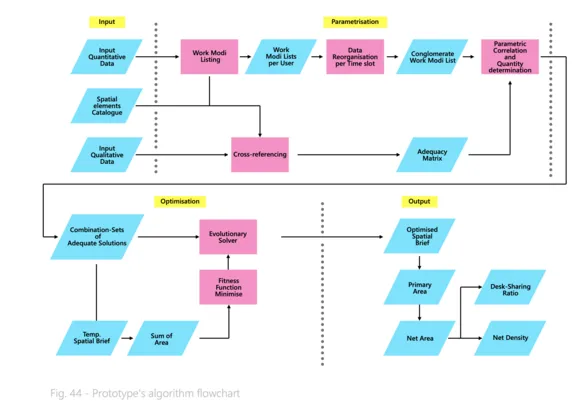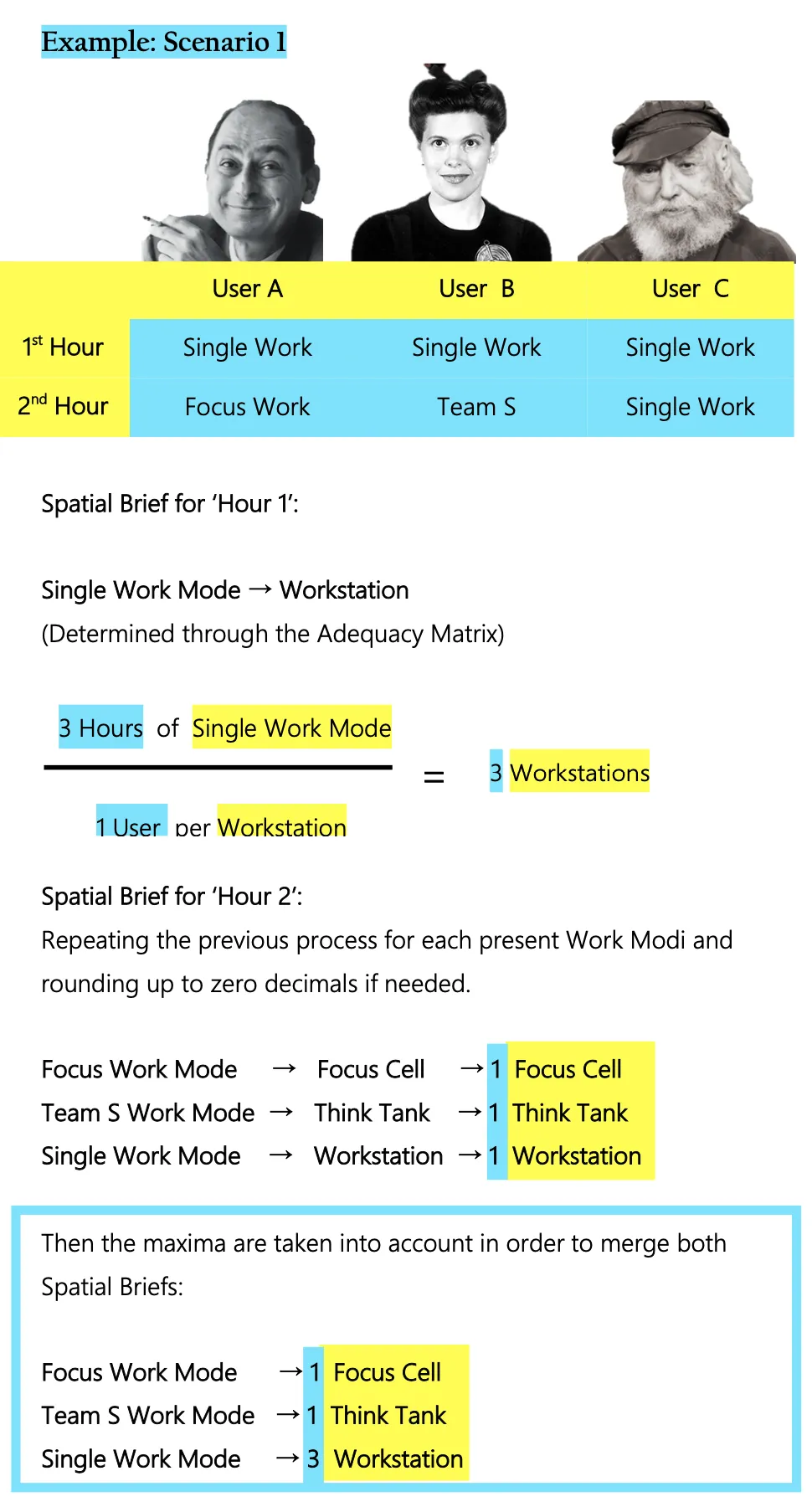
Parametrising New Work – An Algorithmic Approach for the Planning of Multifunctional Office-Spaces
Lars Arturo Wüstemann Aronica
Winter Semester 2021/22
The development of office-space designs is one of the most common yet rather important endeavours for architects. These belong to the main categories of building typologies based on their use. However, history shows that it has been an elusive and hard to accomplish task, which has only grown in complexity in the past decades due to the introduction of 'New Work' practices. This terminology is to be understood as a collection and a critical discussion of various characteristics that are "new" instead of "traditional" that organisations should have. For example, these include the use of digital technologies, flexibility, democratic structures, alternative hierarchies, decentralisation, and self-responsibility, to name a few. The repercussions in the architecture of the work environment are still to be thoroughly evaluated.
This thesis intends firstly to analyse the theory of New Work from an architectural point of view by examining the available scientific literature from multiple scientific fields outside of architecture. Secondly, due to the complexity and the high amount of resources needed for the development and New Work environments (the multifunctional office space), the primary purpose of this work is to conceptualise and prototype an algorithmic approach for the determination of spatial demands for work environments under the principles of New Work - based on user data to determine the most adequate and viable solutions. The development of this approach intends to aid architects in the design process to make New Work, from an architectural perspective, a more realistic and viable approach for more organisations and thus achieve the betterment of the standards of the average work environments.

